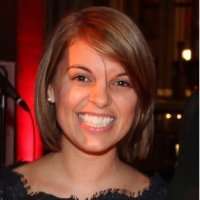Playing a programme inspired by Salvador Dalí’s The Persistence of Memory, the Kronos Quartet re-imagined music from our past for a contemporary audience.
Taking us back to 1926 and the newly independent country of Ireland, Kronos first performed Donnacha Dennehy’s One Hundred Goodbyes (Céad Slán). Built around Dr. Wilhelm Doegen’s original recordings of Irish folksongs and Gaelic speech, the entire piece felt ominous; particularly with the recorded voice in the backdrop, the overlay of sounds created a haunting effect. With no sense of melody or harmonic progression, it was the dynamics that really drove the piece forward. As the piece neared its conclusion, Kronos played repeated trills, quickening in pace as a crescendo built up in both the live and recorded music. The final climax established a dramatic ending that rang out in the halls long after the music ended.
Next, Kronos was joined by cellist Joan Jeanrenaud and performed Vladimir Martynov’s Schubert-Quintet (Unfinished). First Violinist and Artistic Director David Harrington described this piece perfectly: it is music ‘locked in a piece of amber.’ In other words, the extended pauses and elongated musical lines in this version of Schubert’s quintet was so slow it felt stretched out. And yet despite its tempo, the quintet also seemed disjointed. The main melodic line, which was interrupted by breaks in the score, was transformed into a repeated call-and-response between Harrington and the rest of the group. With this demanding score, Kronos achieved the endless, or rather unfinished effect Martynov was striving for.
After the interval, Kronos surprised the audience with a performance of a Philip Glass string quartet accompanied by a film about the worldwide Occupy movement. In that brief moment, the concert stage became a platform for activism. The traditional concert setting was obliterated and Kronos inspired a re-imagination of themselves and their role as a string quartet.
In keeping with the theme of re-imagination, Kronos moved on to perform Nicole Lizée’s Death to Kosmische, a mix of live and electronic sounds that challenges perceptions of musical sounds and forms. As computerised music echoed across the stage, Kronos imitated the recordings, achieving incredibly distorted and unique sounds from their respective instruments. The result was a strange reverberation of sound that seemed to hold no beginning and no end.
Last but certainly not least, Kronos and the composer Michael Hearst paid tribute to the 1980s children’s TV show Pee-Wee’s Playhouse, with the song Secret Word, a title which is itself a tribute to the show. (For those unfamiliar with Pee Wee’s Playhouse, each episode, viewers were told a new ‘secret word’, which you were meant to yell out loud anytime a character said it on the show.) Just like the theme to Pee Wee’s Playhouse, Hearst’s Secret Word had a simple, catchy melody. But the fun didn’t stop there. All sorts of instruments joined Kronos on stage; there was a giant white tuba, a vuvuzela, a bike horn, a kazoo, an accordion that was played by blowing into a plastic tube, cymbals, even a rubber chicken. It’s safe to say that in this last piece, everything was fair game.
By the end of the concert, the sombre, reflective thoughts from the first half were banished by the cacophony on stage for Secret Word. Nevertheless, Kronos effectively touched on two poignant themes – memory and time – with clever musical idioms interspersed throughout. At points, the concert was heartfelt and serious, while at others it was spirited and just plain fun. Altogether, the Kronos Quartet delivered a surprising and engaging concert experience.


